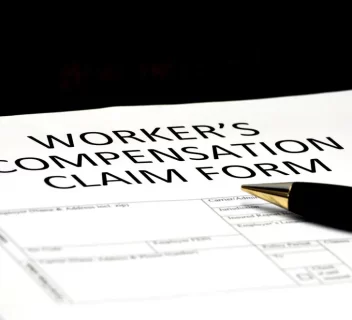How Long Does a California Workers’ Comp Settlement Take 2025: Complete Timeline Guide
Introduction: California Workers’ Comp Settlement Timelines and Why Speed Matters
There’s no specific time period for how long a settlement takes, as these are private affairs and there is no publicly available data on it. That being said, in California workers’ comp settlements can take months for more standard cases, with complex cases extending years in 2025. The timeline depends heavily on injury severity, insurance company cooperation, and whether you have experienced legal representation from day one.
This comprehensive guide covers settlement types, key factors affecting timing, the step-by-step process, and proven strategies to expedite your case. You’ll discover why 1-800-THE-LAW2 provides expert legal support that can minimize delays while maximizing settlement amounts. Hiring an experienced workers’ comp lawyer can further expedite your claim, ensure fair treatment from insurance companies, and help secure all benefits you are entitled to as an injured employee.
California processes over 472,500 workers’ comp claims annually, with settlement timing varying dramatically by case complexity. Understanding these timelines is crucial because delays can create financial hardship while medical bills accumulate, and temporary disability benefits may not cover your living expenses. For an injured employee, lost income and lost wages during recovery can add significant stress, making timely settlements and proper compensation essential.
Understanding California Workers’ Comp Settlement Types and Timing Factors
Core Settlement Definitions for 2025
The workers’ compensation claim process in California offers two primary settlement structures, each with distinct timing implications:
Compromise and Release (C&R) Settlements provide complete case closure with a lump sum payment. These settlements typically finalize within 30 days after judicial approval and permanently release the insurance company from future liability, except for any agreed-upon future medical care.
Stipulated Awards establish ongoing payments for permanent disability benefits while preserving your right to future medical treatment. This settlement type allows continued medical care for your workplace injury without the finality of a C&R settlement.
Maximum Medical Improvement (MMI) represents the critical milestone when your treating physicians determine you’ve reached a recovery plateau. Most workers’ compensation settlements cannot proceed until reaching maximum medical improvement MMI, as this allows accurate assessment of permanent disability and future medical needs.
The 104-week rule caps temporary disability payments at 104 weeks total, creating pressure points in settlement negotiations that can affect timing strategies.
Key Factors That Impact Settlement Speed in 2025
Injury severity and complexity dramatically influence settlement timelines. Minor injury cases may resolve within a few months, while severe injuries requiring multiple surgeries may extend years before reaching maximum medical improvement.
Insurance company behavior varies significantly across providers. Some insurance companies employ delay tactics to pressure injured workers into accepting lower settlements, while others maintain more cooperative approaches that expedite fair resolutions.
Medical treatment progress directly controls settlement timing, as reaching maximum medical improvement MMI is a prerequisite for meaningful settlement negotiations. Complex medical cases requiring extensive treatment naturally extend timelines.
Legal representation quality creates the most dramatic impact on settlement speed. Experienced workers’ comp attorneys can expedite cases through expert case management, aggressive advocacy, and deep knowledge of insurance company tactics.
Why Settlement Timing Matters for California Workers in 2025
Financial pressure mounts quickly when temporary disability benefits provide only 67% of your pre-injury wages. Many injured workers discover these payments are insufficient to cover mortgage payments, utilities, and family expenses, making settlement speed critical for financial survival. In addition to these challenges, medical expenses from workplace injuries can quickly add up, making it essential that workers’ compensation payments are sufficient to cover these costs.
Medical bills accumulate throughout lengthy settlement negotiations, creating additional financial stress. Without proper legal representation, workers’ compensation insurance providers may delay authorizing necessary medical care, forcing injured workers to pay out-of-pocket for essential treatment.
2025’s inflation significantly affects delayed settlements, as the purchasing power of awarded amounts decreases over time. A settlement worth $50,000 today provides less financial relief if delayed by two years due to ongoing cost-of-living increases.
Statistical data reveal stark differences in outcomes: workers with legal representation settle faster and receive higher compensation compared to self-represented claimants.
Step-by-Step Timeline: From Injury to Settlement Payment in 2025
Step 1: Initial Claim Filing (Days 1-30)
Report your workplace injury to your employer within 30 days as required by California law. Timely notification and proper documentation of workplace injuries are essential to comply with legal requirements and protect your rights. This deadline is absolute and cannot be extended, making immediate action crucial. Your employer must provide you with a DWC-1 claim form within one business day of notification.
Complete all paperwork thoroughly and submit it to your employer’s workers’ compensation insurance provider promptly. The workers’ compensation insurance provider is responsible for processing and investigating your claim. Any delays or incomplete information can provide insurance companies with grounds to deny or delay your claim.
Contact 1-800-THE-LAW2 immediately to connect to an attorney in our network. Having legal representation can help to avoid early mistakes that cause significant delays. Insurance adjusters often contact injured workers within days of claim filing, attempting to secure recorded statements or quick settlements that dramatically undervalue claims.
Step 2: Claim Investigation and Treatment Phase
The insurance company has 90 days maximum to approve or deny your workers’ compensation benefits. During this investigation period, you’re entitled to receive up to $10,000 in immediate medical treatment regardless of claim status.
If unable to work, temporary disability payments should begin promptly after claim acceptance. For those who qualify, temporary total disability benefits are paid when your injury or illness prevents you from working at all, providing wage replacement during your recovery period. These payments equal two-thirds of your pre-injury average weekly wage, subject to state maximum limits ($1,704 per week in 2025).
Document all medical treatment meticulously and keep detailed records of treatment costs, as these expenses are a key part of your claim and affect the overall settlement value. Follow prescribed care plans exactly. Insurance companies scrutinize treatment compliance and may deny benefits if you miss appointments or fail to follow medical advice.
1-800-THE-LAW2 attorneys monitor claim progress actively, ensuring insurance companies meet legal deadlines and provide appropriate medical care authorizations without delays.
Step 3: Reaching MMI and Settlement Negotiations
Your treating physician determines when you’ve reached maximum medical improvement, the point where further functional recovery is unlikely. This milestone triggers permanent disability rating evaluations if you have lasting impairments. If there is a dispute over your permanent disability rating or MMI assessment, a qualified medical evaluator (QME) may be appointed to provide an independent evaluation. Alternatively, both parties can mutually select an agreed medical evaluator (AME) to facilitate an impartial assessment and help resolve disagreements.
Settlement negotiations typically begin once MMI status is established and permanent disability ratings are assigned. At this stage, you may receive a workers’ comp offer from the insurance company. The process to settle a workers’ comp claim often involves extensive back-and-forth between your legal representation and the insurance company’s adjusters to reach a fair resolution.
Attorneys in the 1-800-THE-LAW2 network leverage decades of experience in personal injury and workers’ compensation law to expedite fair settlement offers through aggressive negotiation tactics and thorough case preparation. A skilled attorney’s track record of securing favorable settlements can motivate insurance companies to present reasonable offers early in negotiations.
Calculating Disability Benefits in California Workers’ Comp Settlements
If you’ve been injured in a California workplace accident, then calculating your disability benefits in workers’ comp settlements is absolutely critical for ensuring you receive the financial support you deserve. Once you reach what’s called maximum medical improvement (MMI), you’ll undergo a medical evaluation to determine the extent of any lasting impairments you may have suffered. This evaluation results in a disability rating — and here’s the important part — this rating directly influences both the amount and duration of your permanent disability benefits.
Your disability rating reflects how much your workplace injury impacts your ability to earn a living (and this is where things get really important for your financial future). In California, this rating gets combined with factors such as your age, your occupation, and the severity of your impairment to calculate your final benefit amount. Simply put, a higher disability rating typically leads to greater permanent disability benefits, providing you with ongoing financial support if you’re unable to return to your previous job or earning capacity.
That being said, it’s crucial that you understand the calculation process can be complex — and here’s something you should know: insurance companies may attempt to minimize your disability ratings to reduce settlement amounts. This is exactly why working with a knowledgeable workers’ comp attorney is so important for protecting your interests. An experienced attorney will advocate for a proper evaluation, challenge any unfair ratings, and help maximize your workers’ comp settlement (securing the permanent disability benefits you need for long-term financial stability). Don’t let the insurance companies shortchange you — there’s really no downside to consulting with an attorney who can ensure your disability rating accurately reflects your condition.
The Role of a Workers’ Comp Attorney in Speeding Up Your Settlement
A skilled workers’ comp attorney is absolutely essential for injured workers seeking a faster, fairer settlement — and here’s why that matters so much. From the moment you file your workers’ comp claim, an experienced attorney streamlines the claim-filing process by ensuring all paperwork, medical records, and supporting documentation are complete and submitted on time (which, believe it or not, is where many claims get derailed right from the start). This proactive approach prevents those all-too-common administrative delays that can stall your workers’ compensation claim for months.
That being said, attorneys also conduct extensive investigations to gather crucial evidence — things like medical evaluations and witness statements — which strengthens your case significantly and makes it much harder for the insurance company to dispute your claim. Suppose, for example, that you were injured in a workplace accident, but there were questions about how it happened. Your attorney would work to gather witness testimony and documentation that clearly establishes the facts. By managing all communications with the insurance company (and trust us, there will be plenty of back-and-forth), your attorney can quickly address issues, resolve disputes, and push for timely responses, keeping your claim moving forward when it might otherwise get stuck in bureaucratic limbo.
When it comes to settlement negotiations, a workers’ comp attorney leverages their expertise to secure a fair settlement amount, using their in-depth knowledge of the claims process and the specific tactics insurance companies use to delay or undervalue claims (and they have quite a few tricks up their sleeves). Simply put, insurance companies know when they’re dealing with someone who understands the system versus someone who doesn’t. If your case requires a hearing or trial, your attorney will represent you, advocating for your rights and ensuring you receive the workers compensation benefits you’re entitled to — not just what the insurance company initially offers.
By entrusting your case to an experienced attorney, you can focus on your recovery while they handle the complexities of the settlement process (which can be surprisingly intricate, even for seemingly straightforward cases). This not only accelerates the timeline of your workers’ comp settlement but also increases your chances of achieving the best possible outcome — and in most cases, the difference in settlement amounts more than makes up for the attorney’s fees.
Common Mistakes That Delay California Workers’ Comp Settlements
Mistake 1: Accepting quick, lowball offers without legal review costs injured workers thousands of dollars in underpaid benefits. Insurance companies routinely present initial offers that are 40-60% below fair settlement values, hoping injured workers will accept out of financial desperation.
Mistake 2: Missing medical appointments or failing to follow treatment plans provides insurance companies with legitimate grounds to deny claims or reduce settlement amounts. Consistent treatment compliance demonstrates the ongoing medical necessity and supports higher settlement valuations.
Mistake 3: Not documenting injuries properly or delaying medical care weakens case evidence significantly. Gaps in medical records allow insurance companies to argue that injuries weren’t work-related or are less severe than claimed.
Mistake 4: Attempting self-representation against experienced insurance adjusters puts injured workers at severe disadvantages. Insurance adjusters handle hundreds of claims annually and exploit unrepresented claimants’ lack of legal knowledge.
Pro Tip: 1-800-THE-LAW2 prevents these costly errors by connecting you to a qualified lawyer who can provide experienced case management from the start. This ensures proper documentation, treatment compliance, and strategic settlement negotiations that maximize your benefits and expedite your claim.
Working with a qualified attorney is crucial, as experienced workers’ compensation attorneys typically in California operate on a contingency fee basis—meaning you pay nothing upfront, and their fees are set by the court as a percentage of your settlement, depending on case complexity and duration. This legal expertise helps you navigate the process, maximize your benefits, and expedite your claim.
Real-Life California Workers’ Comp Settlement Timeline Example
Case Study: A construction worker suffered a herniated disc injury requiring surgery, and ultimately settled with the assistance of legal representation for $185,000 in just 10 months.
Starting Situation: The employer’s insurance company initially denied the workers’ compensation claim, arguing the injury occurred off-site. The injured worker received no temporary disability payments and struggled to pay for necessary medical treatment.
Attorney Actions Taken:
- Month 1: Immediately appealed claim denial with a comprehensive evidence package
- Month 2: Secured medical treatment authorization and temporary disability payments
- Month 3: Coordinated surgery with the approved workers’ compensation physician
- Month 8: Obtained a favorable permanent disability rating after reaching MMI
- Month 10: Negotiated final settlement through aggressive advocacy
Final Results: The case resolved in 10 months versus an estimated 24+ months without legal representation. The settlement amount exceeded the insurance company’s initial offer by $95,000, demonstrating the financial benefits of experienced legal advocacy.
| Timeline Comparison | Without Attorney | With Attorney |
|---|---|---|
| Claim Acceptance | 6+ months (after appeals) | 2 months |
| Medical Treatment Access | Delayed/Denied | Immediate |
| Settlement Amount | ~$90,000 (estimated) | $185,000 |
| Total Timeline | 24+ months | 10 months |
Frequently Asked Questions About California Workers’ Comp Settlement Timing 2025
A1: Yes, hiring experienced attorneys can reduce settlement time months (or even years, in some cases) through expert negotiation and aggressive case management that prevents insurance company delay tactics.
A2: Trials add months or even years to settlement timelines, but an attorney’s high settlement rate helps avoid lengthy court proceedings through skilled negotiation that resolves most workers’ compensation cases without litigation.
A3: Compromise and release settlements typically pay within 30 days of judge approval, while stipulated awards begin disability payments immediately upon approval through the Workers’ Compensation Appeals Board.
A4: Many insurance providers use systematic delay tactics to pressure injured workers into accepting low settlements, which is why an attorney’s aggressive advocacy and deep knowledge of insurance company strategies is essential for fair and timely resolutions.
A5: Compromise and release settlements typically close out future medical care rights, while stipulated awards preserve access to ongoing treatment. Attorneys can help you choose the right settlement structure based on your long-term medical needs.
Conclusion: Key Takeaways for Faster California Workers’ Comp Settlements
Most California workers’ comp settlements take months for standard cases, but can extend years for complex, disputed claims or severe injuries requiring extensive medical treatment. Understanding these timelines helps set realistic expectations while planning for financial needs during the settlement process.
Legal representation reduces settlement time while increasing compensation. Their experienced workers’ comp attorneys prevent costly mistakes, counter insurance company delay tactics, and leverage expert negotiation skills to expedite fair settlements.
Early attorney involvement proves crucial for optimal outcomes. Contacting 1-800-THE-LAW2 immediately after your workplace injury will help you connect to a qualified attorney for a free consultation. If you move forward with an attorney, this ensures timely claim filing, prevents insurance company manipulation, and establishes advocacy from day one of your workers’ compensation case.
Understanding settlement types (compromise and release versus stipulated awards) helps you choose the right strategy for your specific situation. Attorneys provide expert guidance on settlement structures that maximize both immediate financial relief and long-term protection for future medical needs.
Call 1-800-THE-LAW2 today for a free consultation with an attorney in our network. Depending on the attorney and your claims, they may be able to expedite your workers’ comp settlement.




